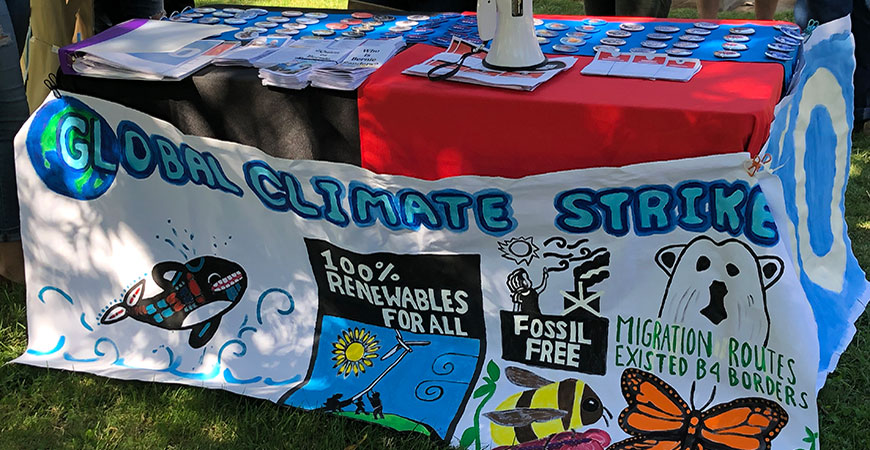
One of the major challenges of this century is democratically engaging institutions and large numbers of people with strategies to mitigate global warming by minimizing greenhouse gas emissions.
A new study by sociology Professor Paul Almeida and colleagues in the Nature Portfolio’s journal npj Climate Action indicates labor unions and community-based groups have the best chance of getting people to act. They can also help overcome some impediments to action, such as misinformation, apathy, awareness, climate denialism among elected officials, lack of resources among vulnerable populations and and an over-emphasis on technology-based solutions without public input.
Former U.S. Speaker of the House Tip O'Neill coined the phrase “all politics is local,” and while that might not be 100% accurate, a lot of it is. Cities are one of the largest sources of greenhouse gas emissions, in large part because of industrial activity, transportation and land use choices.
Many climate-action efforts occur at the city level, and it is important for residents to have input with their elected representatives and state officials, to act in their communities and help motivate others to get involved in large-scale projects of climate adaptation, resiliency and green energy transitions.
California has already begun to recognize how important action is at the local level, Almeida pointed out in a blog post for the journal article that the state is a model for climate mitigation and adaptation policies. California “allows cities to convert to renewable energy distribution in their municipal power grids, encourages the formulation of climate action plans at the city level, and legislates a plethora of grants and climate policies mandating community participation and environmental justice principles.” The state also has cap-and-trade and federal money to invest in climate mitigation strategies.
“They should put some of that money where it will really make a difference,” Almeida said. “They should invest in these labor and community groups that have the best chance to mobilize people into action to participate in climate resiliency programs.”
That's one of the conclusions in the paper by Almeida and fellow sociology Professor Edward Flores, along with graduate student Luis Rubén González, Venise Curry, M.D. — a Fresno-based psychiatrist and civic leader/community organizer — and Ana Padilla, the executive director of the UC Merced Community and Labor Center.
Through their representative survey of 1,950 Fresno residents, the researchers found that one-third of respondents were willing to attend a local meeting about climate change. People who are already part of what the researchers call high civic-capacity groups or have previously been civically engaged — such as attending rallies or community meetings or reaching out to elected officials — are already more likely than others to get involved and take action against climate change.
The high civic-capacity groups, including labor unions, have also built trust with their memberships and can reach other people, too, engage them in conversations, work to dispel misinformation, get out the vote and energize people to act, this study implies.
“In Fresno, the labor unions have built relationships with the community-based groups, including environmental organizations,” Almeida said. “Fresno is not unique. These groups work together often, and because of the activities these groups do, they are good at civic-capacity building.”
For climate-action programs to engage a substantial number of people in California and around the world, partnerships with community and labor organizations are crucial, the researchers said.
“Civic engagement is one of the major pathways forward,” Almeida said. “Without significant investment by the state in the groups most capable of generating participation in climate action, we probably won't be able to transition to a just, equitable and environmentally sustainable future.”



